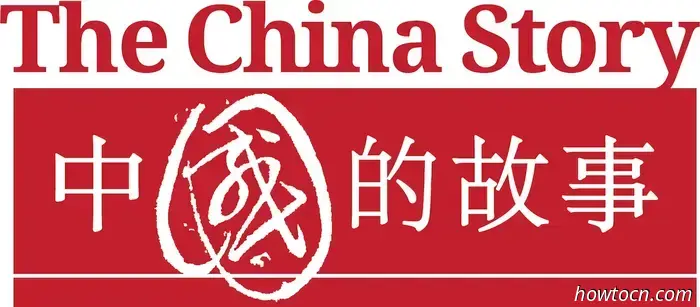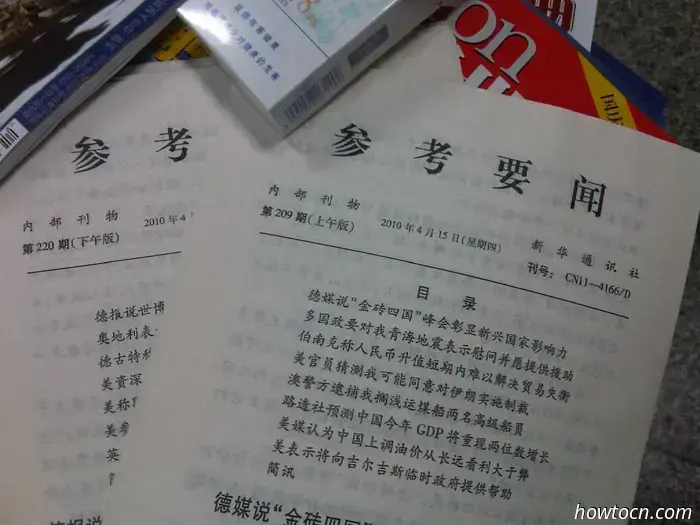
Chinese digital nationalism is currently experiencing significant attention. A notable indicator of this is the increasing nationwide interest in cultural heritage, especially among younger Chinese individuals. They showcase their passion through the romantic consumption of heritage items, such as traditional Hanfu 汉服 clothing, including the mamianqun 马面裙 skirt and the cheongsam, also known as qipao, a popular women's dress style from the early 20th century. According to Alibaba’s digital marketing platform, sales of mamianqun increased by nearly 25 percent and cheongsam by over 31 percent in January 2024.
The government's proactive promotion of Chinese culture, combined with the rising influence of digital platforms as channels for patriotic messaging, has significantly enhanced the visibility of cultural heritage on social media. These efforts have inspired Chinese youth to actively engage in studying, sharing, and enjoying cultural heritage in today’s digital landscape.
Reflecting this digital nationalism is China's acceptance of the global trend of repatriating cultural artifacts. Towards the end of August 2023, a three-part mini-series titled ‘Escape from the British Museum’ 逃出大英博物馆 gained traction among Chinese viewers on Douyin, the Chinese version of TikTok. Created by content creators Pancake Fruit Boy 煎饼果仔 and Summer Sister 夏天妹妹, the series narrates a tale in which a Chinese jade teapot transforms into a girl and escapes from the British Museum. Eager to return to China and reunite with other cultural relics in Chinese museums, the teapot girl encounters a young Chinese journalist in London, who assists her in returning home. After reading emotional letters from other artifacts in the British Museum to their long-lost counterparts in China, the jade teapot ultimately decides to go back. The narrative concludes with the message: ‘We Chinese don’t go around stealing chickens and dogs. But one day, we will return home with honour and dignity. May our nation and our homes be forever safe and peaceful.’
As reported by The Guardian, ‘Escape from the British Museum’ reached 370 million views by September 21, 2023, just 16 days after releasing its final episode. Through careful use of language, including quotations from ancient Chinese poetry and romantic portrayals of traditional culture, the series resonated deeply with young people's selective engagement with Chinese history and cultural heritage. It also communicated a subtle yet politically significant message about the role of cultural heritage in shaping national identity. Despite some criticisms regarding its narrative, characters, and production quality, the series initiated discussions across Chinese society about the repatriation of cultural artifacts.
Chinese state media have praised the series for highlighting the younger generation's regard for cultural heritage. For example, China News characterized it as ‘a creative and profound work, imbued with a strong sense of patriotism,’ concluding with a hopeful wish for ‘more lost cultural relics to find their way back home.’
In recent decades, the Chinese government has worked to recover cultural artifacts stolen and smuggled out of the country during the period known as the ‘century of humiliation’ (1839-1945). China has successfully brought back lost cultural items, such as the bronze animal heads looted by British and French forces from the Yuanmingyuan (The Old Summer Palace) during the Second Opium War in 1860, through diplomatic efforts, international law enforcement, negotiations, donations, and commercial repurchases. However, distinguishing between stolen relics and legally acquired items is complicated, and many repatriation efforts face legal hurdles. Although there are international agreements promoting the return of unlawfully taken cultural properties, such as the Hague Convention for the Protection of Cultural Property in the Event of Armed Conflict and the UNESCO 1970 Convention on the Means of Prohibiting and Preventing the Illicit Import, Export, and Transfer of Ownership of Cultural Property, the chances for repatriating Chinese artifacts held abroad are significant challenges. UNESCO estimates that around 1.6 million cultural antiquities from China are spread across 200 museums in 47 countries, with about 23,000 items residing in the British Museum.
Unlike the more typical global discussions on the repatriation of cultural heritage, which often address colonial histories via truth-telling and reconciliation, the dialogue sparked by ‘Escape from the British Museum’ primarily centers on nationalist feelings. The narrative reflects China's century of humiliation through the displacement of these cultural artifacts. With China's resurgence under the Communist Party of China (CPC), there is a strong belief that these items should be returned with dignity. Thus, consistent with state-promoted ‘Cultural Awareness and Self-Confidence’ initiatives, the patriotic narrative of the series fosters a heightened sense of responsibility for China's future and its cultural legacy.
Traditionally, efforts to instill patriotism in China were mainly driven by government propaganda, including national cultural policies, messages spread through official media, and patriotic education in schools. This top-down approach to patriotic education has been in effect since the


The lives of Africans in Guangzhou have been adversely impacted by China's stringent visa and residency regulations, as well as police oversight. This includes direct visa checks that could result in deportation, and indirect monitoring in shopping malls where Africans conduct business, the hotels they occupy, and the community committees in their residential areas. The majority of African importers possess thirty-day tourist visas or visitor visas that last one to two months, which are inadequate for placing orders, waiting for factory deliveries, and managing shipping processes. Only a small percentage have managed to secure longer residency permits (up to one year) to operate cargo businesses or stores in China. Some individuals are residing there illegally, either on fraudulent visas (sometimes issued by deceitful visa agencies) or by overstaying due to a lack of funds to purchase a return ticket.

Thank you for engaging with the China Story. The moment has arrived for us to part ways. The website will cease updates starting February 2025.

In April 2024, the Taiwan Constitutional Court conducted a hearing regarding the potential violation of constitutional human rights guarantees by the death penalty. On September 20, it decided to maintain the death penalty, introducing some new safeguards for its application. Although a coalition of abolitionist non-governmental organizations (NGOs) and research institutions, spearheaded by the Taiwan Alliance to End the Death Penalty (TAEDP), has spent twenty years campaigning for its abolition, numerous polls have consistently shown significant public resistance to eliminating the death penalty.

I was one of the organizers of the 2014 pro-democracy Umbrella Movement and received a sixteen-month prison sentence for encouraging people to participate in a seventy-nine-day occupation of major roads in Hong Kong. Life in prison was challenging. The food was poor, and the summer heat was unbearable while winters were excessively cold. There were numerous regulations governing prison life. Sharing food, books, or even keeping an orange overnight could lead to punishment through solitary confinement, where one would have no access to books, snacks, radio, or television. Inmates were stripped not only of their freedom but also of their dignity, frequently scolded by guards and monitored naked by surveillance cameras.
-Science-Fiction-The-China-Story.png)
In April 2024, Nymphia Wind, a drag queen from Taiwan, made history as the first East Asian winner of RuPaul's Drag Race. Clips of her in a shimmering golden outfit gained widespread attention online, bringing Taiwan into the global media spotlight and establishing her as a kind of queer representative for Taiwanese authenticity to the world. As she humorously noted, this role can be compared to a wai jiao guan 外焦官 – ‘external banana official’, a play on words with the term for 'ambassador' 外交官.

A common saying regarding communist regimes is that their leaders tend to overlook the intelligence provided to them. Martin Dimitrov explores the different internal reference materials under Xi and asserts their ongoing importance. In China, similar to other communist regimes, there are two categories of media: one that is publicly available and another that is restricted, accessible solely to regime insiders with the necessary clearances. This second category, referred to as neibu 内部 or 'internal circulation,' has not been as thoroughly examined by scholars.
Chinese digital nationalism is experiencing a notable rise. A significant indication of this is the increasing public interest in cultural heritage across the nation, particularly among younger generations. They showcase their passion through the enthusiastic purchase of heritage items, such as traditional Hanfu 汉服 fashion, which includes the classic skirt known as mamianqun 马面裙 and the cheongsam, a widely recognized women's dress style from the early 20th century, also referred to as qipao. As reported by Alibaba’s digital marketing platform, in January 2024, sales of mamianqun rose by nearly 25 percent, while cheongsam sales increased by over 31 percent.